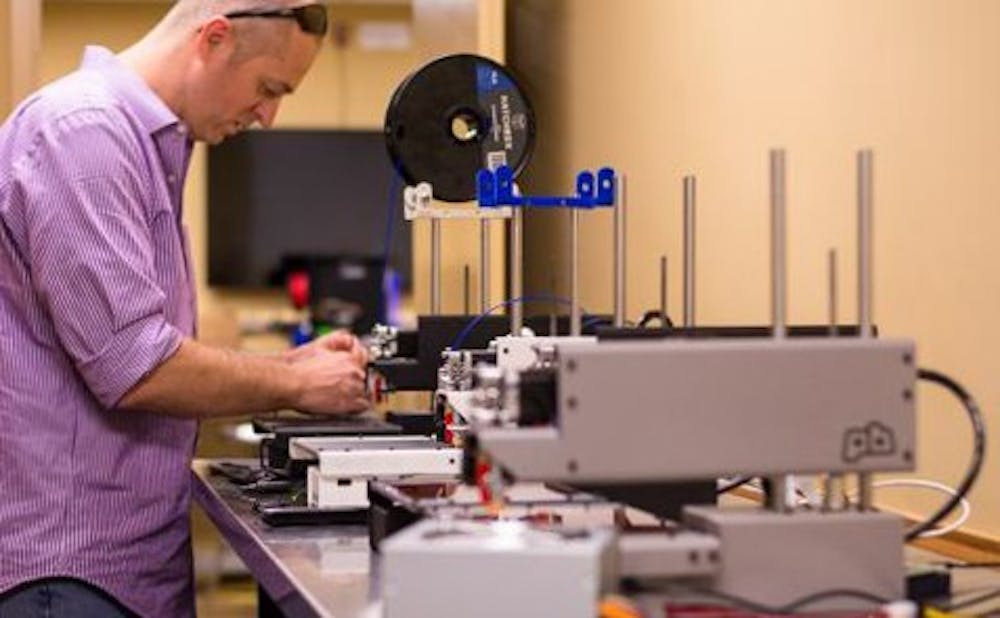Duke is already a leader in 3D printing technology, and the University will be hosting a conference at the end of the semester to further the discussion.
"Construct3D" will take place from May 5 to May 7 at the JB Duke Hotel. This three-day conference will focus how 3D printing can be implemented in higher education, K-12 and community institutions. The committee in charge of the conference is reviewing proposals for talks and workshops.
“There’s no standard or agreed-upon way in which to integrate 3D printing into a curriculum,” said Chip Bobbert, a digital media engineer and conference organizer. “We think there are pros and cons to the different ways that people approach it, but we’d love to see some semblance of educational community developed out of this.”
The University's Innovation Co-Lab currently houses 55 printers in the Technology Engagement Center, which are available for student use. But Bobbert added that there are still many questions regarding the integration of 3D printing into education. Construct3D aims to solve some of those problems by opening up dialogue between manufacturers and users, as well as between educators using the technology.
One speaker at the event is Skylar Tibbits, a professor from the Massachusetts Institute of Technology who co-directs the Self-Assembly Lab. Others include representatives from a Virginia school district and Dale Dougherty, who is CEO of a company that connects 3D printing enthusiasts.
Bobbert said the committee originally expected 30 submissions, but is now considering 115 proposals. Most of the proposals came from educators, although a few were submitted from industry groups. Although most of the proposals are about the actual integration of 3D printing into education, several also discuss the organization of a "makerspace" inside an institution.
Durham-based manufacturer ShopBot Tools, which makes equipment for 3D printers, will also make an appearance. Founder Ted Hall noted in an email that his company will participate through demonstrations and presentations, as well as by sponsoring the whole conference.
“Because this technology represents the future of our productivity and creativity, it is important to integrate its practice and conceptual basis into education, indeed into education at all levels,” he wrote. “It represents a way of thinking about making, design, innovation and collaboration that we need to be comfortable with.”
Bobbert had the idea for Construct3D last year after fielding phone calls from other institutions looking for advice because of the University's own 3D printing facilities. But, at the same time, he realized there was no one to provide meaningful advice to Duke’s digital fabrication division.
“We’re an industry leader by accident,” he said. “We have one of the largest accessible 3D printer deployments in all of higher education that any student can walk in and use, and that’s very uncommon.”
He acknowledged the potential dangers of digital fabrication technology being so readily available to students, but said that this only highlights how important and timely this conference is in solving problems before they become a real issue.
Although no Duke students are involved in the production of the conference, Bobbert said he is looking into sponsoring scholarships so interested students can attend.
“Ideally, if I can solve and learn what other people are doing and pick up tips and tricks from them, then I’m turning around and giving students a more effective product as a result of my labor,” he said.
Get The Chronicle straight to your inbox
Signup for our weekly newsletter. Cancel at any time.

